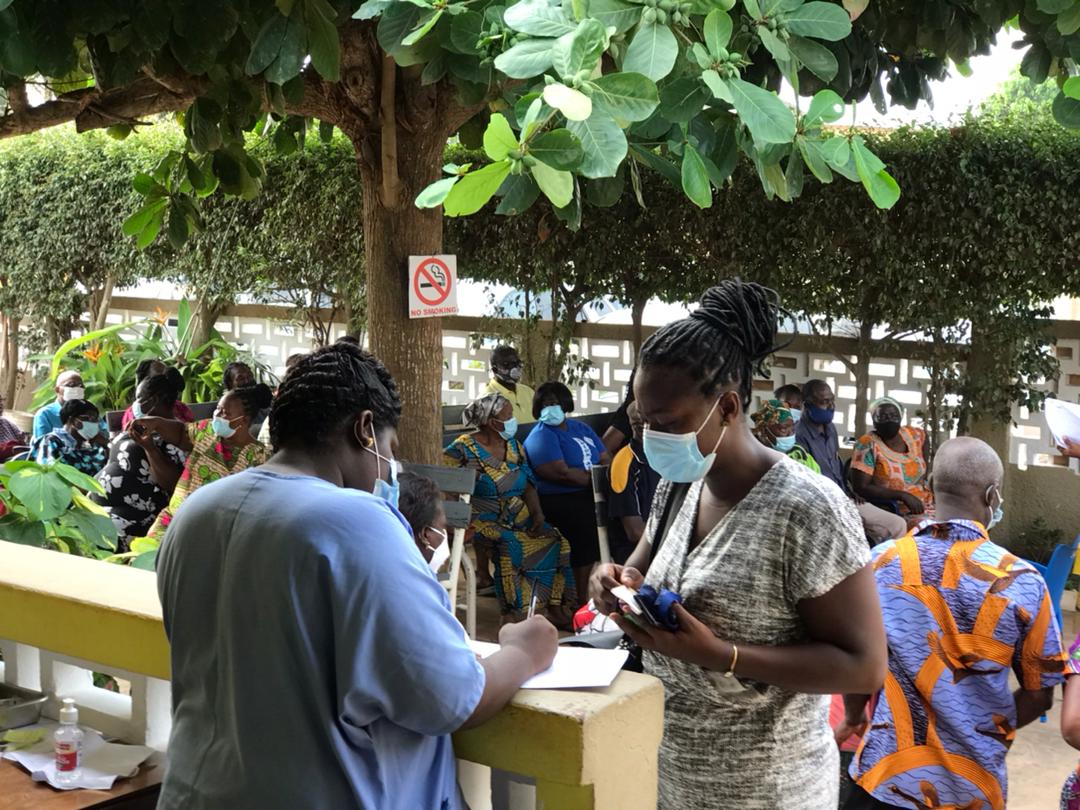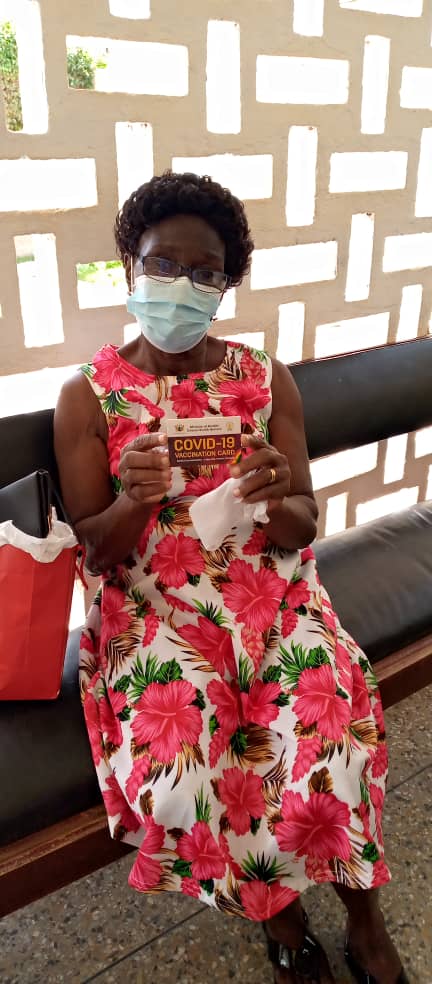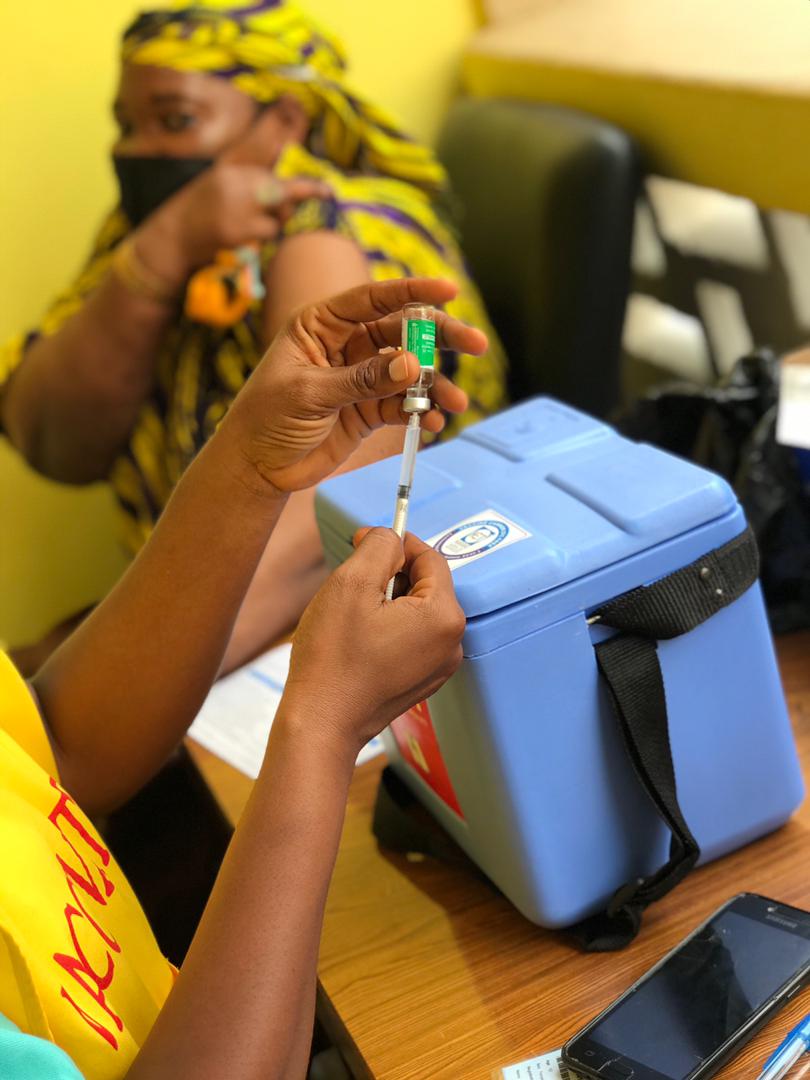On-going Vaccination at Central Dansoman Clinic

Get your vaccination now at Central Dansoman Clinic now!!!.
A person with COVID-19 is contagious and can start spreading it to others starting 48 hours (2 days) before the person has any symptoms or tests positive.
Slow the Spread of COVID-19
While we are waiting for COVID-19 vaccine to be available for everyone in the U.S., CDC recommends that everyone take these actions to help slow the COVID-19.
- Wear a mask that covers your nose and mouth to protect yourself and others and stop the spread of COVID-19.
- Stay at least 6 feet (about 2 arm lengths) from others who don’t live with you, particularly in crowded areas. Avoid indoor spaces as much as possible, particularly ones that aren’t well ventilated.
- Wash your hands with soap and water for 20 seconds or use hand sanitizer with at least 60% alcohol.
Testing for COVID-19
If you have symptoms of COVID-19 and want to get tested, the CDC suggests that you call your healthcare provider first. You can visit your state or local health department’s website to look for the latest local information on testing.
If you have symptoms of COVID-19 and choose to not get tested, it is important to stay home and away from others. Find out what to do if you are sick.
Find out when to quarantine.
Check out the video below and learn more about testing for COVID-19.
 COVID-19 vs. Flu
COVID-19 vs. Flu
Flu and COVID-19 are both respiratory illnesses that can result in hospitalization or death. Because some of the symptoms of flu and COVID-19 are similar, it may be hard to tell the difference between them based on symptoms alone, and testing may be needed to help confirm a diagnosis. View the differences and similarities between COVID-19 and flu. Download this table from CDC that shows the symptoms of COVID-19, Common Cold, Flu, Strep throat, Asthma and Seasonal Allergies.
Virus Variants
According to the CDC, there are multiple SARS-CoV-2 variants (the virus that causes COVID-19) that are circulating around world. Some of these variant viruses spread more easily and quickly, which may lead to more cases of COVID-19. An increase in the number of cases will put more strain on healthcare resources, which could lead to more hospitalizations, and potentially more deaths from COVID-19.
- United Kingdom (UK) – In the UK, a new variant of the virus that causes COVID-19 has been discovered. This variant spreads more easily and quickly than other variants. In January 2021, experts in the UK reported that this variant may be associated with an increased risk of death compared to other variant viruses, but more studies are needed to confirm this finding. This variant has now been seen in numerous countries, including the United States and Canada.
- South Africa – This virus variant seen in South Africa shares some mutations with the variant detected in the UK. COVID-19 cases caused by this variant of the virus have been reported in the U.S. at the end of January 2021.
- Brazil – This virus variant was first identified in travelers from Brazil, who were tested during routine screening at an airport in Japan, in early January 2021. This variant contains a set of additional mutations that may affect its ability to be recognized by antibodies. More study is needed. This variant was first detected in the U.S. at the end of January 2021.
Experts are working to learn more about these virus variants to better understand them. View a map of U.S. COVID-19 cases caused by virus variants.
COVID-19 Vaccines
Even though COVID-19 vaccines are being developed more quickly than usual, vaccine safety is still a top priority in all phases of vaccine development (clinical trials), approval and post-approval monitoring. While steps are being streamlined or overlapped, none of them are being skipped.
As of February 27, 2021, the FDA has given emergency use authorization* to three COVID-19 vaccines. The best COVID-19 vaccine to get is the one that is offered to you.
- Pfizer-BioNTech – A COVID-19 vaccine made using mRNA technology. Two doses are required.
- Moderna – A COVID-19 vaccine made using mRNA technology. Two doses are required.
- Johnson & Johnson (Janssen) – A COVID-19 vaccine made using viral vector technology. One dose is required.
(Before authorizing* and recommending for vaccines for emergency use in the U.S., both the FDA’s Advisory Committee (VRBPAC) and the CDC’s Advisory Committee (ACIP) have carefully reviewed the clinical trials’ data to make certain the vaccines are safe and effective. The FDA and CDC continue to monitor all of the COVID-19 vaccines for safety). As more vaccine makers submit their applications for emergency use to the FDA, more vaccines should become available.
 Where Get COVID-19 Vaccines?
Where Get COVID-19 Vaccines?
For now, there is only a limited number of COVID-19 vaccine doses available. This means that everyone who wants a COVID-19 vaccine will not be able to get it right away.
Each state/territory (or city or county) is making the decision of exactly how their COVID-19 vaccines will be given out. Click here to find the COVID-19 COVID-19 vaccine information on the website for your state or territorial health department.
People who are eligible for COVID vaccination in their state and are interested in getting vaccinated at their local pharmacy should call or check the pharmacy’s website to find out if vaccine is available. To see which pharmacies are administering COVID-19 vaccines, visit CDC’s list of pharmacy partners in each state. Most pharmacies are using online scheduling systems to schedule vaccination visits for eligible individuals based on their limited available vaccine supply.
For Now…Continue to Wear Mask and Social Distance – Even After Vaccination
Stopping a pandemic like COVID-19 requires using all the prevention tools we have. The combination of getting vaccinated and following CDC’s recommendations to protect yourself and others, such as wearing a mask and social distancing, will offer the best protection from COVID-19.
While medical and public experts learn more about the protection that COVID-19 vaccines provide under real-life conditions – including whether the vaccines will stop vaccinated people from spreading the COVID virus to other people, even if they don’t get sick themselves – it will be important for everyone to continue wearing a mask and social distancing.
Other factors, including how many people get vaccinated against COVID-19 and how the coronavirus is spreading in communities, will also help experts decide when we can stop following these public health guidelines. Some experts estimate that approximately 70-85% of people will need to be vaccinated for the U.S. to experience “community immunity” (also known as herd immunity).
Source: vaccinateyourfamily.org
